Plato defines art as an imitation of reality. If we agree with that definition, then photography takes top place in the arts, as it most directly copies reality. All other forms of art, to a greater or lesser extent, change reality and can’t be reduced to the moment. Photography allows the moment to last through the time, without losing any of its essence and subtracting nothing from its transience. The moment becomes static only in the space. And when it once got its place in space, it last through time…
Dushko Gjorgon is a chronicler and photographer of Struga, a local hero and a living encyclopaedia. He is official photographer at the Struga Poetry Evenings from the beginnings in 1962 until 2011. His home/studio carefully preserves the history and the “frozen” moments of this greatest Macedonian poetry event, which celebrated Struga around the world. There is no other place like Struga (Kako Struga nema druga) are verses sung in Macedonian evergreens, but also the moments, eternal with the camera lens of our interlocutor.
Indelible pictures and memories
I was born in 1940, during World War II. My birthday is on June 24th. I’m 79 years old and entered the 80’s. I already say that I’m 80 years old, we start conversation with Dushko.
Until the third year of his life he lived in this house, which was property of his grandfather (his mother’s father), and now lives here with his family for 40 years after buying it from his uncle. He spent most of his childhood and youth in a house that he calls an old home, on the other side of the river Drim, 200 meters from the national “Dr. Nikola Nezlobinski Museum”.
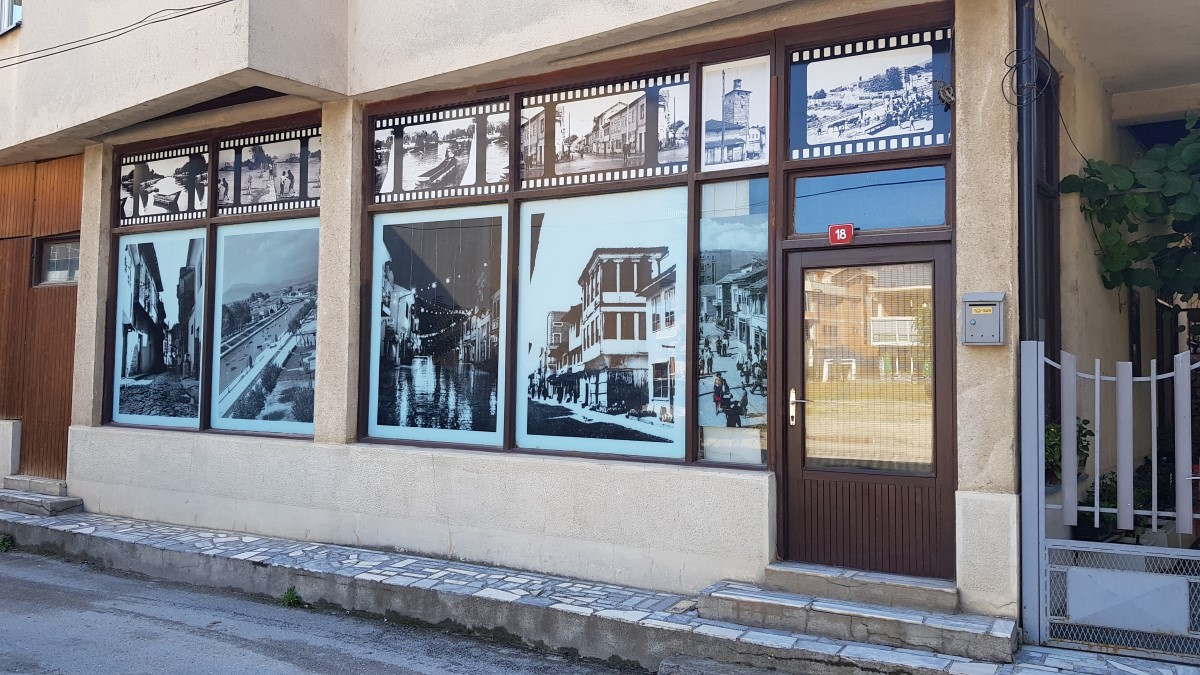
We asked him for the earliest childhood image that he remembers, the one that remained deeply engraved in his memory.
I was 4-5 years old. Next to our house near Sokolana (old Struzhanka) the Italian soldiers were stationed in the War. There were also Germans, but less than the Italians. The Italians were more, Dushko remembers. As a child, just like any other child, I would go and curiously watching those men in uniforms. They would tell me to bring them a pan or a pot to give me some of their food. The risotto or whatever they called it… Something like the polenta we make… They would fill my bowl and I would run home to eat. Everybody loves children, so they loved me no matter that they were occupiers.
In the military shelter on the street there were a bunch of hats, blouses, pants, belts and other things. Sometimes somebody of the older comrades, who were 7-8 years old, use to tell him: Dushko, take that hat and bring it to me. The friends knew that he could be beaten if the Italian soldiers caught him.
I waited for the sentry to move away so I could get closer to the pile of hats, take one and run across the street to give it to Klime, now deceased, and he would escape through the alleyways. I was teasing him all my life later. I asked him when he would sign me a martial pension for my “military” ventures, and he laughed… Once they even managed to steal a pistol from a German driver while he was busy repairing the tire.
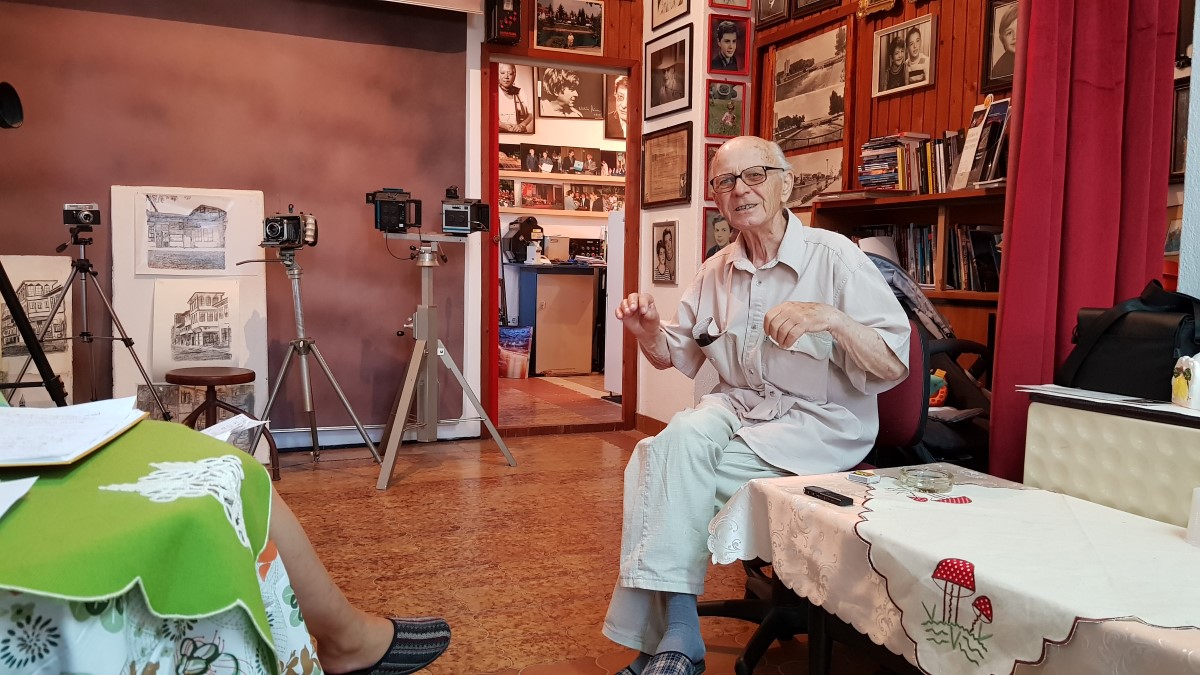
Those were the events in those years that I remember. Strange thing, we have much more memories from the childhood than from nowadays, something that is happening daily. Those childhood memories are deeply in our soul and cannot been erased, they are always here…,
Dushko narrates with a smile.
We come to the moment of our hero’s first encounter with photography. To Mitko Dobrevski and Stavre Popov…
I was a member of Narodna tehnika as a kayak sportist. That group in Struga was very developed. I was 9 years old and I could handle kayaking. I was constantly present, making mock ups, small sailboats, kayaks… One day, Mitko Dobrevski, who was as a senior in Narodna tehnika, says to me: Come my boy, I want to show you something. We entered the room and we darkened a bit. He took some powder, the chemistry to make a developer, the composition for photography. He mixed everything in a vial. One, two, they were five components to get the picture out, to develop. And he mixed them. In that time there were no magnifiers cameras for larger images, but only a direct copy. He shows me how to put the negative, how to put the paper, how to expose light… For the first time in my life I saw how the pictures, photos are made. It was very interesting for me and I saw this man not as senior in Narodna tehnika, but as a friend who wanted to convey something to me. To help me gain insight for something in my life. It was about 1949/50.
The years were passing… Dushko has finished the eighth grade. Some of his friends from the generation continued their education and some have decided to be craftsmen – to learn production… They all chose different directions. He wanted to be a joiner, to strengthen his muscles a bit, but mostly, because five of his friends were admitted in that cooperative society.
I and my father Mihailo went to the head of that cooperative. He received us and immediately began to complain that everyone there was “skiving”, hiding and not wanting to wear a plank… Normally, he needed obedience. And the senior told my dad that he couldn’t accept me, because he still couldn’t deal with the new ones. My father begged him: Please, just one more, my child… but he was determined.

While the father and the son were returning from the joiner’s cooperative in silence, with bent heads, sad that they didn’t make it, suddenly at one crossroad, Mihailo stopped his son and asked him: Do you want to be a photographer? Dushko, who had always wanted to draw cubes and different patterns in his notebook, who had one chance to see how the photos are making, smiled shyly and replied:
Why not? Yes, Dad, I would love to!
Master Stavre Popov accepted the young apprentice immediately.
He couldn’t refuse my father, because we were bit relatives. Not so little, but seriously… So, in 1953, I became chirak (the beginning level of apprentice), but a real one, who was serving and being obey. Whether it was for photography or for helping Stavre’s family. I was on that level for three years, and then I went to the next level of apprentice – kalfa. While I was kalfa, the master died. Struga was left without a photographer in that time. The municipality provided funds for establishing some firm, as “Gradsko photo” in Skopje. So we did it in Struga. We gathered four people. From this firm, where I worked for a salary, I have two and a half years work experience. Then I went into the army. After serving my military service in Smederevska Palanka, Shumadija, I was not received back. I said to myself, ok, I will go to Ohrid and look for a job. Wherever I was asked for a job, I was welcomed.
At that time a colleague-photographer began persuading Dushko to open his own store. At first, he was frightened of the amount of tax he would have to pay, but soon he decided to accept the challenge. In 1963, he opened a store in at old home, where he made a studio.
I loved my craft very seriously. When I started with my store, I didn’t have my own cameras, I borrowed them from friends. A friend of mine and the other friend who was in military service in Egypt gave me cameras, and I worked with their cameras. There was a lot of work… I photographed people for ID cards, passports and other documents… after portraits came, I photographed brides and grooms… After that I start with descriptive reports. In the summer season I went to the beach, took pictures and sell them. In the winter I was going in every institution in Struga and taking photos of workers on machines… I photograph people in the Bazaar. The work has expanded; there was a lot of work, I started to earn well. I felt in love with my profession and I was very diligent, always giving my best. If I didn’t like the photo, I would do it again and again to get the desired quality. And very importantly, I used the most expensive materials – German, Italian. These expensive materials helped me a lot – they cost me much, but my earned income become bigger and bigger.
The moments last forever
The first Struga Poetry Evenings starts on 24th of August, 1962… We asked Dushko how he came to be the photographer of the first Poetry Evenings, whether anyone invited him, or it was on his own initiative…
And he began:
Brothers Miladinovci from this town were the inspiration for the Struga Poetry Evenings. They gave literacy to everyone… The brothers walked through Europe and around the world… Everything starts with the poet Vlado Maleski, who also lived in Struga. Gane Todorovski and Ante Poposki joined… Nice gathering of our great poets. That was before 1962. At one moment, they agreed to call it Struga Poetry Evenings. And so it all started, a little bit shy, but real. We were very proud of that event held in Struga. The whole town was ready to help… When the Struga Poetry Evenings expanded, only two words were needed by the head of the gymnasium, and everyone ran and contributed. Whatever anyone could do – to get chairs, to set up something… we were all ready and willing to help. It was a holiday for all of us. All the firms, factories and institutions contributed to the revival of the event, to its affirmation. From the shy beginnings, slowly, slowly, Struga Poetry Evenings have become a worldwide manifestation. There is no state in the world that was not invited to this event. As the years were passing by, many new ideas were born, how to act, how to move forward…
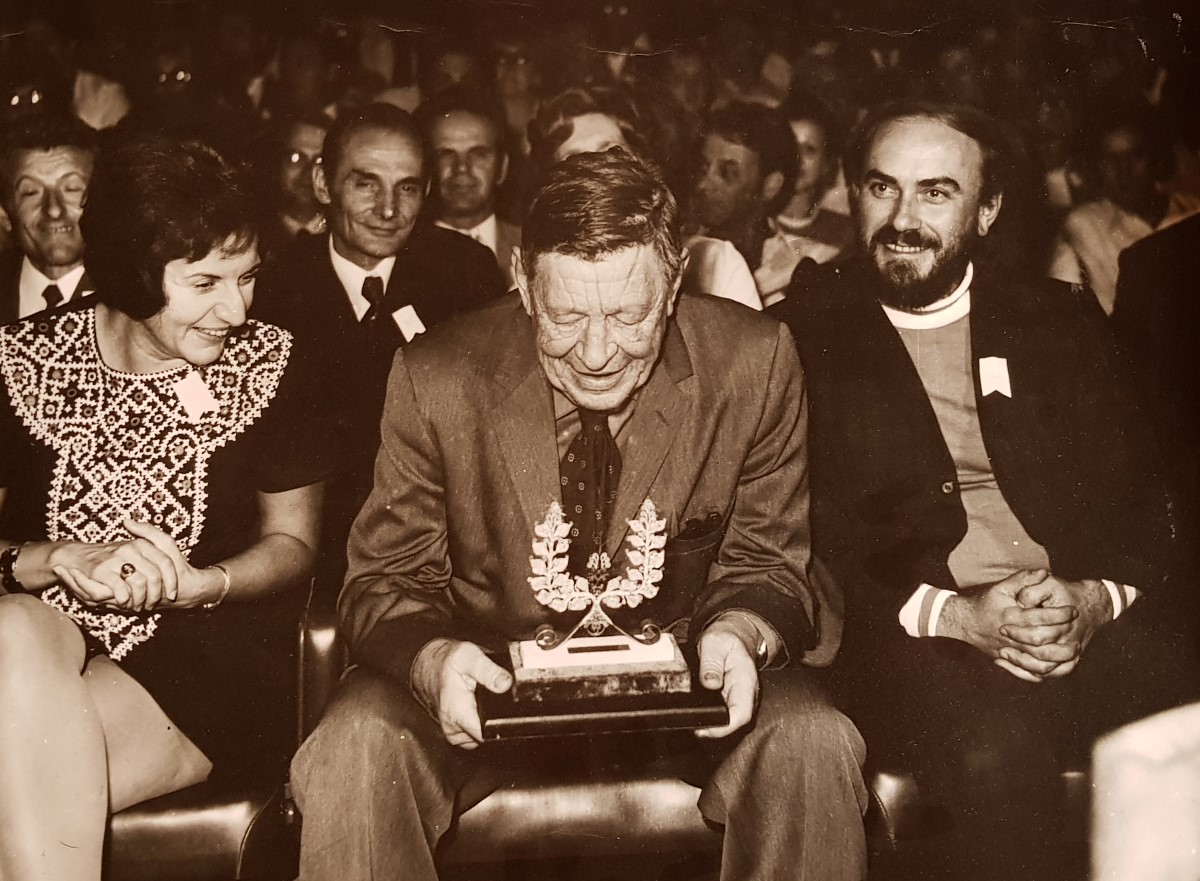
At the first Evenings, Dushko went of curiosity, just to take some photos. He was noticed by the journalists from Skopje, who were following the event. They asked him:
Please, take picture of this poet for me. So, slowly, his official engagement in the organization began: I saw them all as pleasant people, affluent in their soul, who accepted me and began to tell me that they needed me every year. I was going and attending those Struga Poetry Evenings. I became a friend to them, and I got a friendship from them too. There were no generational differences, as a younger boy, I was willingly accepted. I am very grateful until now. We had excellent friendship, people from all over Yugoslavia. It was a friendship that cannot be described.
The next year, the same friends from Yugoslavia came and asked to see their colleagues. They would say: Dushko, take a picture! Photographer, take a picture! We have a photo from the last year, but now we want a new one! Thus, photographer Dushko became popular among fellow artists. He also opened a counter. As he took pictures of them, after lunch or the next day he displayed the pictures on his counter. And people chose their favorites. They bought quality, incredibly beautiful.
Two years later, our hero started to make portraits of all poets.
They didn’t even know I was photographing them. I will find a corner, left or right… And when they saw the picture on the counter, his/hers portrait or in company, particularly with the colleagues…, their joy was incredible. A poet from Krushevo instructed me to put a stamp on the back of the photos. He told me: We all use these photos and portraits in the books that we publish. He gave me an idea. At first, I was a little embarrassed, but then I started proudly to put the stamps.
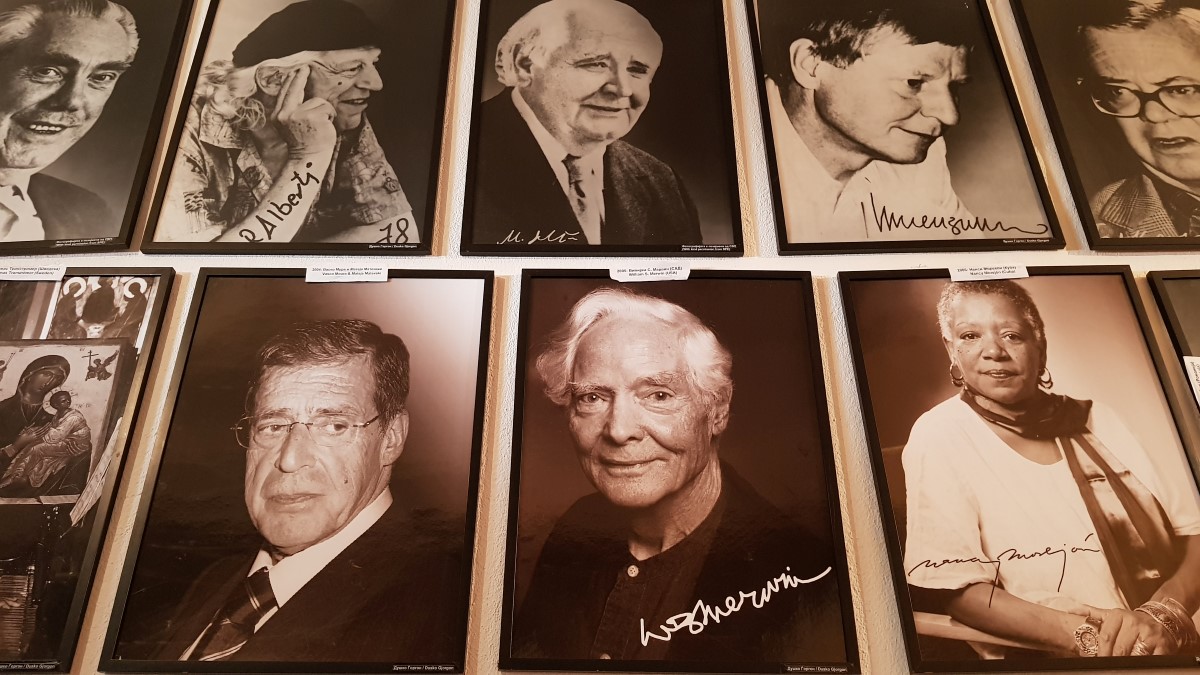
As a good host, Dushko welcomed the guests every year: Welcome to Struga, in ours and yours Struga! Simply, he felt to tell that, so they can feel that their presence was valued, that they worth here. In addition to photographing, it becomes inevitable to drink coffee or another drink together. Thus, most of the poets became Dushko’s close friends.
He had Renault 4, light grey colour. At that time there were only three cars Renault in Ohrid and Struga. He rode in it with four or five girls, dressed in folk costumes, who greeted the poets at the airport with flowers:
They would dress in folk costumes, and the costumes from Struga and vicinity are very rich. We went to the airport with bouquets of flowers. It was not just an official welcome but a warm welcome.
The moments immortalized in photos are endless. Annually, he used between 1.200 and 1.300 negatives. He doesn’t know the exact number of photos and doesn’t remember numbers, only characters, memories and innumerable memories.
I don’t know how many photos I took, I’m not good at numbers. There are few thousands and more. Something I kept something people took for themselves. But the negatives are all here, arranged by years.
We asked Dushko an ungrateful question – which moment and which laureate made the most impression on him.
All those who got award Zlaten Venec, all were carried great quality. Many high quality and powerful poets have come to Struga… I will mention the Irish Nobel laureate Seamus Heaney, who received Zlaten Venec in 2001. He was very busy that year and couldn’t come. He recommended a royal poet from England to be a participant. He proposed him, the poet was accepted and a man came from England.
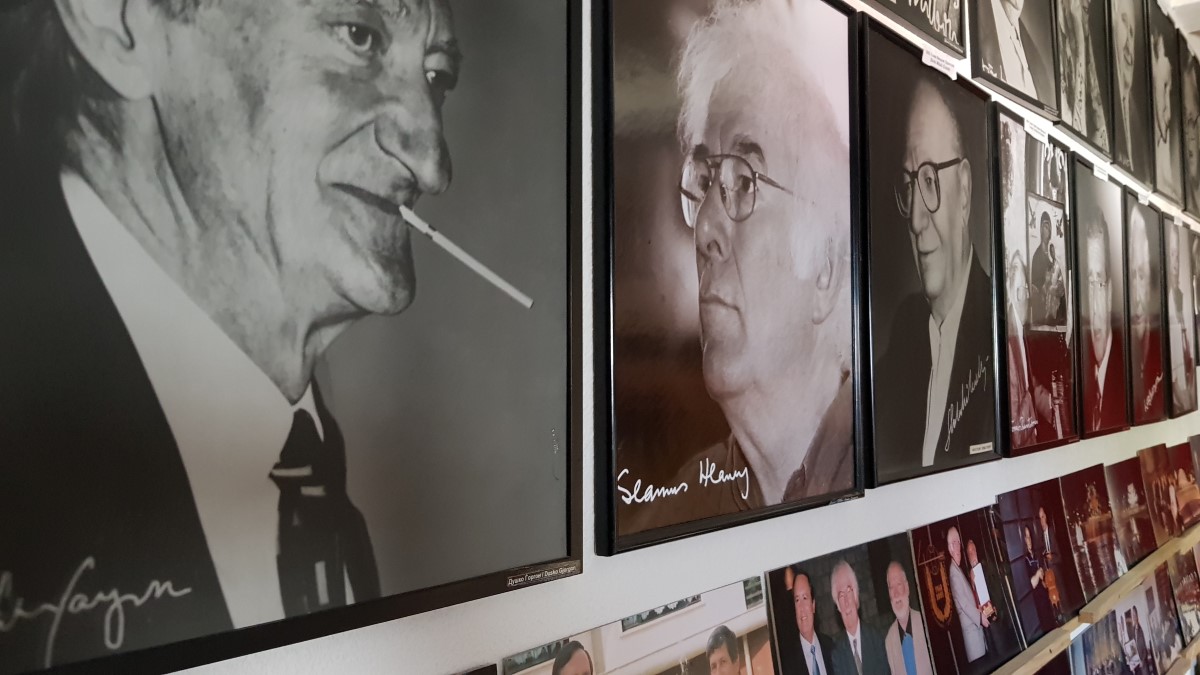
All the participants of Struga Poetry Evenings were very attentive and wanted to meet the locals.
I’ll mention deceased Desanka Maksimovic. She deserved much more than the Zlaten Venec. She was everybody’s mother. Young people were going and wanted to have a picture with her, and I took that photos. She treated everyone with great warmth. She was irreplaceable… The Italian Edoardo Sanguineti was a special story. Faculty professor and top poet. He came into my store, where I had exhibited photos of the previous laureates. The man looked at them and was pleased. Very simple man… What else to say… About the Romanian, Nichita Stănescu. One big man. Full of quality. Journalists from Romania came especially for him. Ne has big value and charisma, he was greeting everyone, wanted to get know everyone closer…
Love is knocking on the door…
In the 42nd year of our hero’s life, he met aunt Lille. Suddenly appears the bride from Sveti Nikole.
Aunt Lile is a special story… I was 42 years old. I was in no hurry to get married; I wanted to have a house first… One day, Marche, a friend from Ohrid, told me to come and meet a girl, probably I’ll like her… And Lile, she was coming from Sveti Nikole through the trade union of factory “Sniteks”. We drove to Ohrid with a friend’s car. Mine wasn’t with the appropriate number (pair or odd). The seminar was at the “Palace Hotel”. We were waiting for the break. My friend introduced Lile to me (he was married to a girl from the same town). That’s how we met. The two of them went away, and I stayed with Lille at the table…
At the first date, Dushko was all feverish, with the flu. Besides that, the first date was full of jokes.
And so, the jokes continued… we parted, but with the words: It’s no mistake to see each other again. Lile accepted. The next weekend she came with her beautiful friend Biljana, and in meanwhile, I invite a younger friend. We were walked together to “Izgrev”, Radozda, wherever we could see something. The next day they left. When we parted, we told ourselves that it will not be mistake to get a weekend party on regular basis. And so it turned out. Next weekend Lile came alone. And she keeps coming every weekend. One day I told her: Grab your suitcase and come. I’ll meet you at the station. She agreed. We met her with my uncle, he was with his Fiat car, and I with my Peugeot. With two cars, as a sign of respect for Lile!. And we took two loaves of bread to enter into my house, in my home. That’s how the work is tied up.
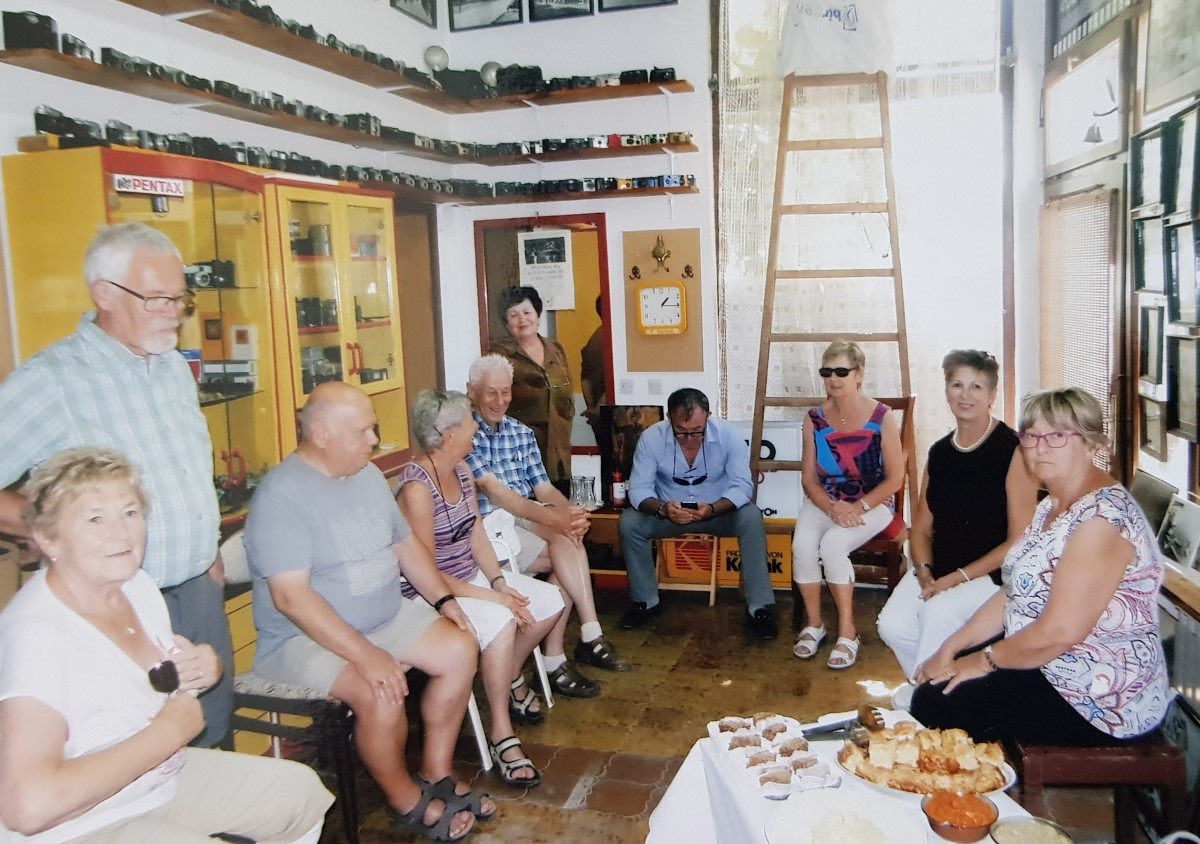
Dushko is very happy beside Lile. He felt very good about her, because she had accepted his views on how to handle certain situations. Today they have a son, daughter and two grandchildren.
Our children had excellent education; we gave them as much as they needed and as much as we could. Even when they were in Struga, they had successfully completed the gymnasium, with the highest grades. We followed them in every step. We were in constant contact with their teachers and professors. I often went to the gymnasium to motivate teachers to activate my children, so they can earn the highest grades, not to be gifted to them. But my children deserve the grades. I’m very fulfilled for that. Both my son and my daughter went to faculty and graduated successfully. Svetlana has degree of Faculty of Philology in Skopje, Italian and English language. Nikola graduated in Belgrade and now he became a doctor of political science. He was always immersed in books and his vocation.
In the family of Wonder Where Travel
Daughter Svetlana was the person who motivates Dushko for opening the doors of his home to tourists. When she first introduced the idea to him, he responded most naturally:
I accepted the idea straightway. Previously, my son and daughter helped me a lot with the work I did here, in the studio. They were present during the layout of the pictures, though some adjustments have yet to be made. They made me very happy in my retirement age. To have a nice and decent life.
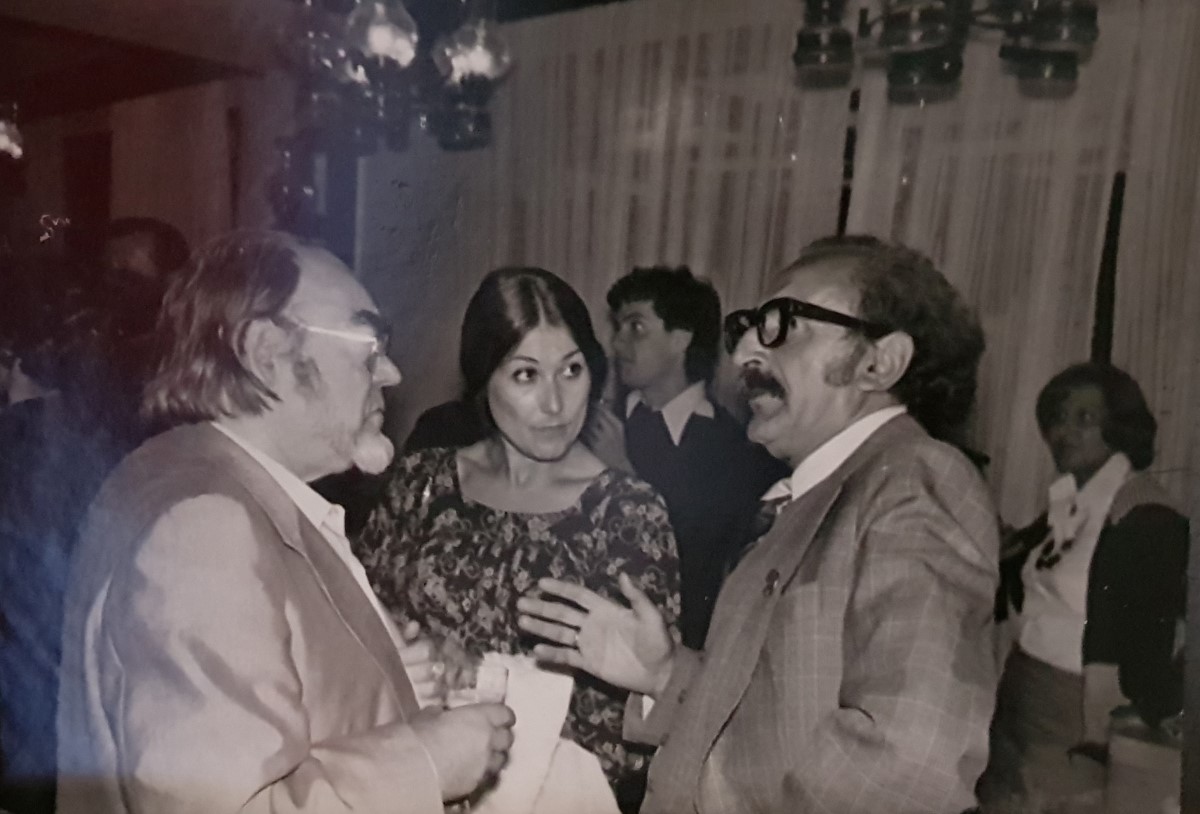
Three years the studio is open to the guests. There was more than enough material, something was repaired, and something is yet to be done.
I’m going to make this place rich, but over time, this cannot be done quickly. The satisfaction is overwhelming. People, the tourists who come here – they fill my life. But in all my life, somehow I didn’t have a chance or I forget to learn any foreign language…
However, Dushko knows in every language to say welcome and good buy. In French he knows to say sit down please. Ever since, he knows a few Italian words…
It’s my fault that I didn’t pay much attention and get involved and to go to courses. I made that mistake. Everyone has some successes and some mistakes. My mistake is that I don’t know any language. But after all, a man without deficiencies is like a tree without branches.
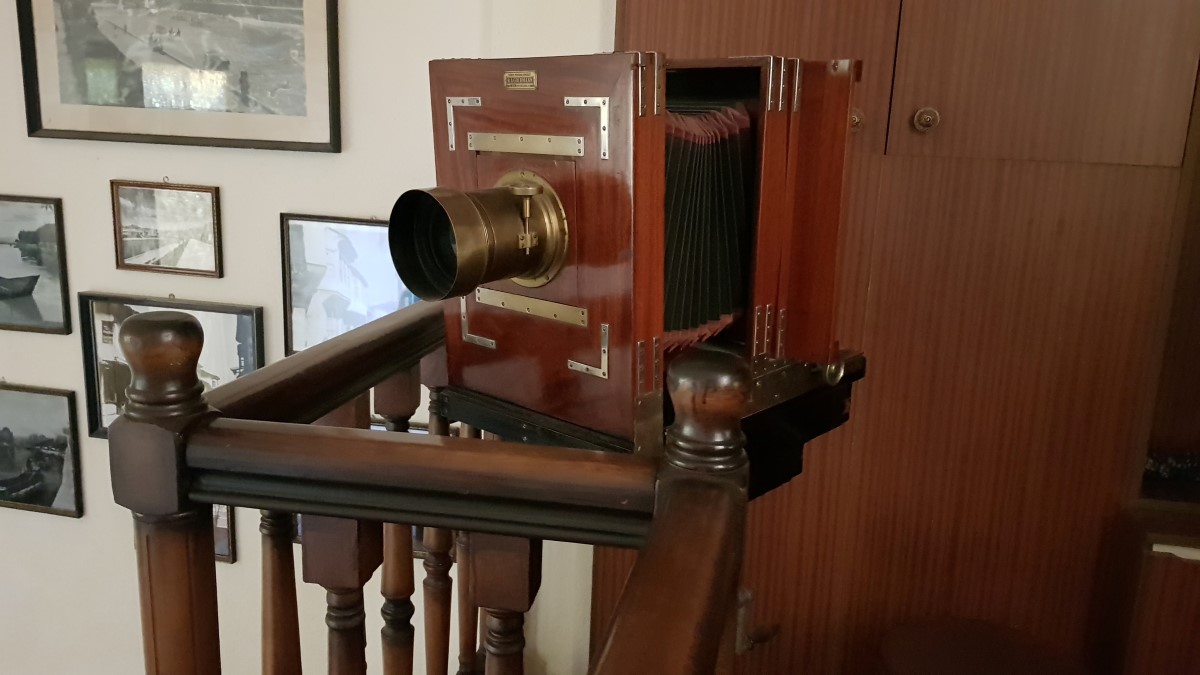
The first meeting with Vlatko was common:
He came here with Svetlana, whether they brought some of the tourists or how it was… They came and we met. He was a pleasant man. He did not act as an senior, as a manager, as some do, but most commonly. He doesn’t act anything special. Simply, he is a person with charisma and positive. And so he remained. How can you not love such a man? Not only Vlatko, there are more others, but they are become more rarely. Nowadays managers are born with a diploma, but diploma doesn’t work. The man should be diligent, to use his own intelligence. Simply, Vlatko was glad received, commonly, nothing silky, nothing added… Simply, he is an example.
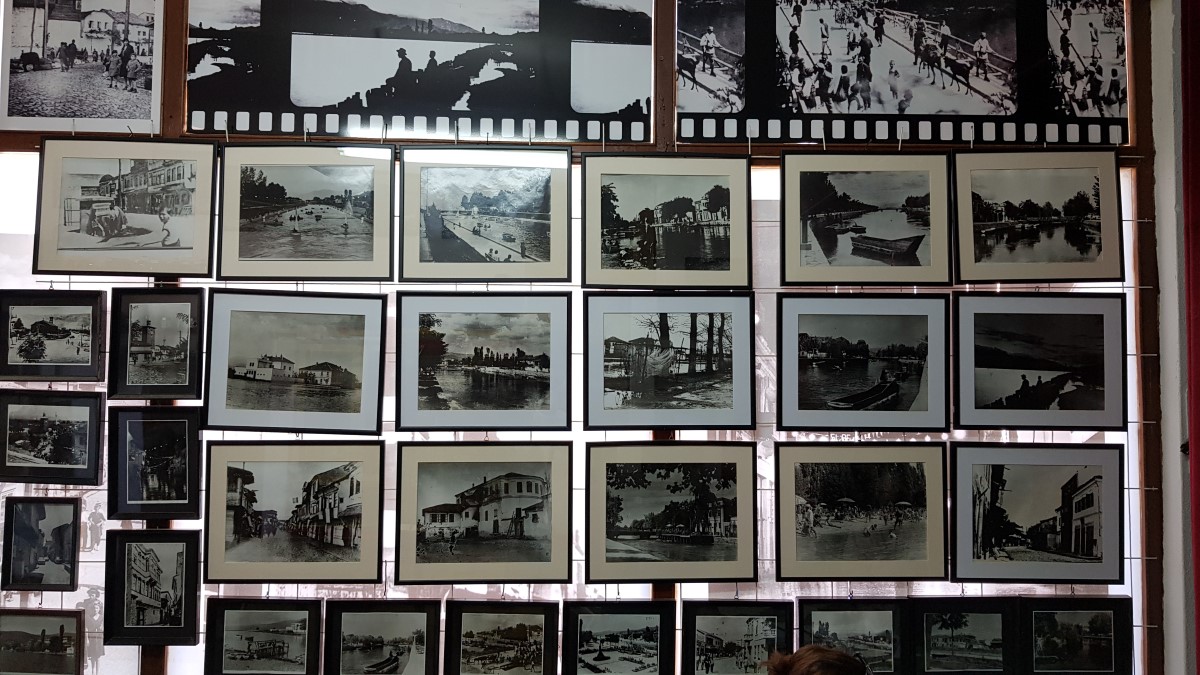
How does it look like one tourist’s visit to the world of Dushko? What stories does he tell the tourists and how he leads them through this puzzle of endless moments? He conveyed us through the time:
This is old Struga 100 years ago. There are also my photos from 20 years ago. Not all of Struga’s photos are mine, some I have reproduced. Here’s what Struga looks like in a panoramic view. This is hotel “Drim”, where it is now. Than we called it “Grand” hotel, as if it is too big. These are some little houses; today all are ruined… there are new on the same places. Today, Struga has changed a lot. Like all other towns, as everywhere… We move here to some portraits, some experiences… This is Esma Redzepova, when she was young. Here is the group “Manifico” from Skopje, they were very famous in our youth days and respected. This is a picture of World War II. This was my uncle, this is the other uncle, this is my neighbour, and this one is from Kumanovo. This picture was made in Kichevo. This is the folk costume from Struga. Wonderful costumes we have here in Struga and vicinity, like nowhere in Macedonia. I also have albums with photos of cultural and sport events (football, handball, swimming, water polo and chess)… There was nothing missing in Struga. Here is my father Mihailo. This was Stavre, my master from whom I learned the craft. Here I have several other portraits, from friends and acquaintances… Esma wasn’t called a queen in vain, that’s how we all felt her, and she was Macedonia’s ambassador… This girl with glasses was named as Miss of Struga’s Beach. Later, she was proclaimed to be the most beautiful girl in Yugoslavia. Her mother was from Trebenishta and father from Struga…
He also showed us the techniques and cameras he had used over the years, which at that time were a true science fiction for the area.
In the section dedicated to the Struga Poetry Evenings, there is a library, where there are books by laureates and participants. When, for example, a group from Spain arrives, here is the book by the laureate Justo Jorge Padrón, who received the Zlaten Venec in 1990. At the choice of the guide or the leader of the group, a song is selected and read in a verse in their native language. The books are in their native language, translated into Macedonian and even into English. These moments offer beyond ordinary experience to tourists. So far the Gjorgon family has received a lot of positive reactions. The Book of Impressions is open to all guests, and its pages are constantly being written with new memorable and warm moments.
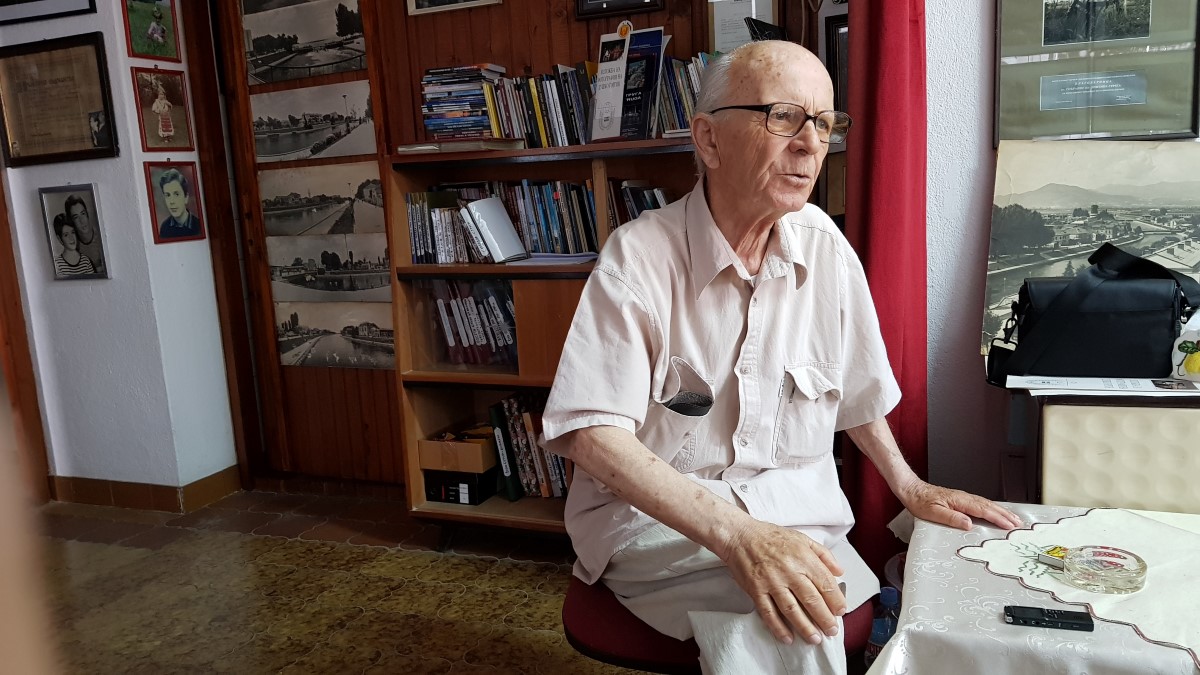
Aunt Lile is always here. She will offer tourists a cookie, juice, coffee, drink… She will set up one table here and another if needed…
We want guests to not only see the exhibition, but to be served with something. To feel accepted and welcomed. That is Lile’s merit, she is my right hand. She is very hospitable person, she loves people and respects them, and is always positive. She doesn’t know politics and empty chats. I’m very proud of her.
That’s Dushko’s corner, his world.
What will all this mean to me, if it was just for me, if someone didn’t visit me… some friend or stranger… it doesn’t matters. Let them see one history and one corner… Where ever you turn here, there is photography…
Lastly, we asked Dushko if he should present today in one photo, how would he took it or draw it. He answered us only briefly: It’s a delicate question.
Surely we forgot to ask him and reword something. Dushko has many stories; we just have to hang out with him more often so we can hear them:
Who doesn’t have stories, everyone has! Every single person has his own history, meeting with the people and with the world. Let my story stay for next time to upgrade it…
American photographer Margaret Bourke-White said: Sometimes a moment gives meaning to a photo, and sometimes photo gives meaning to the moment. In this case, both apply. It was said by a top photographer who didn’t meet Dushko. Imagine what she would say if she had the opportunity to meet him.

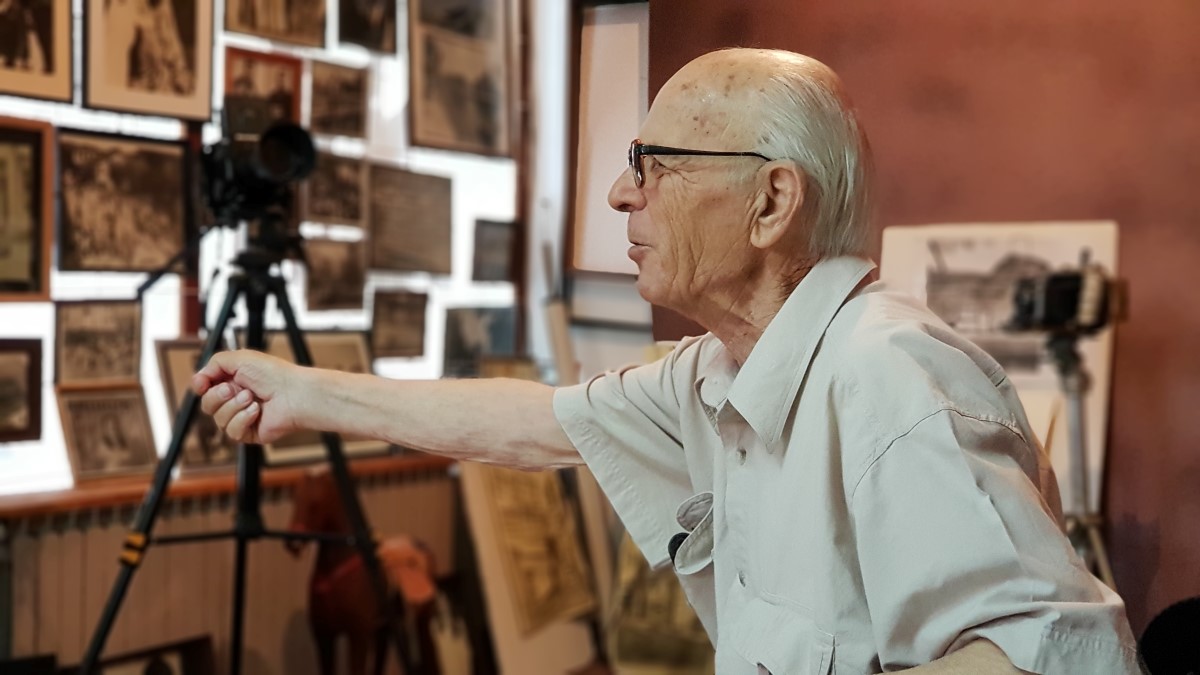
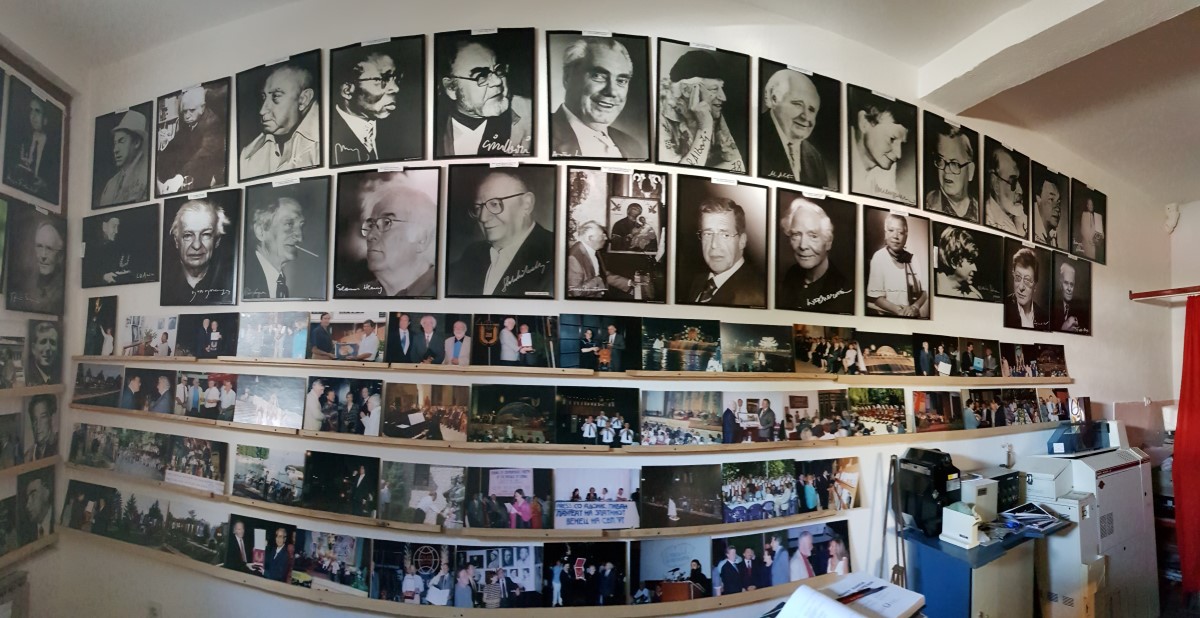
Leave a Reply